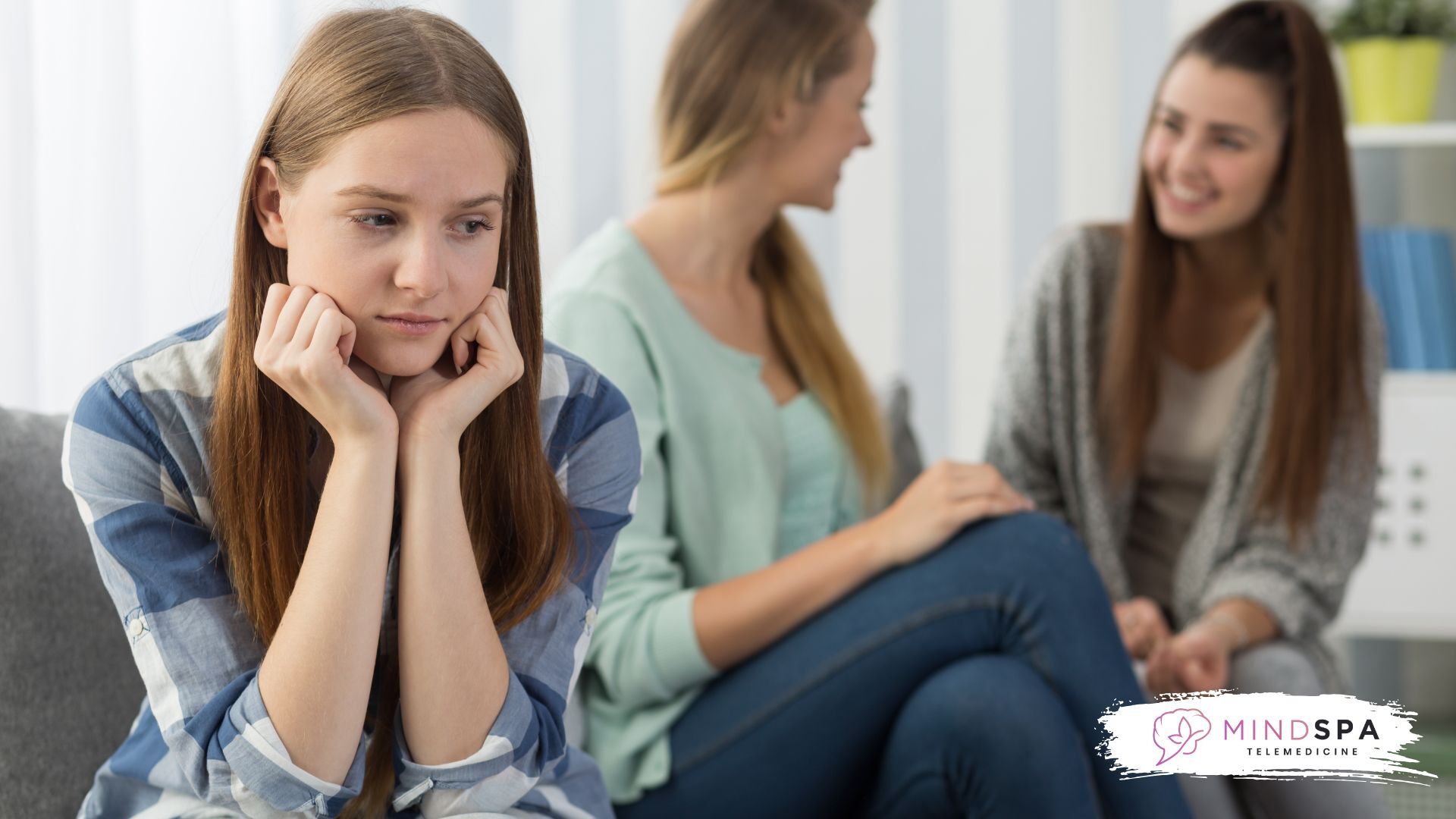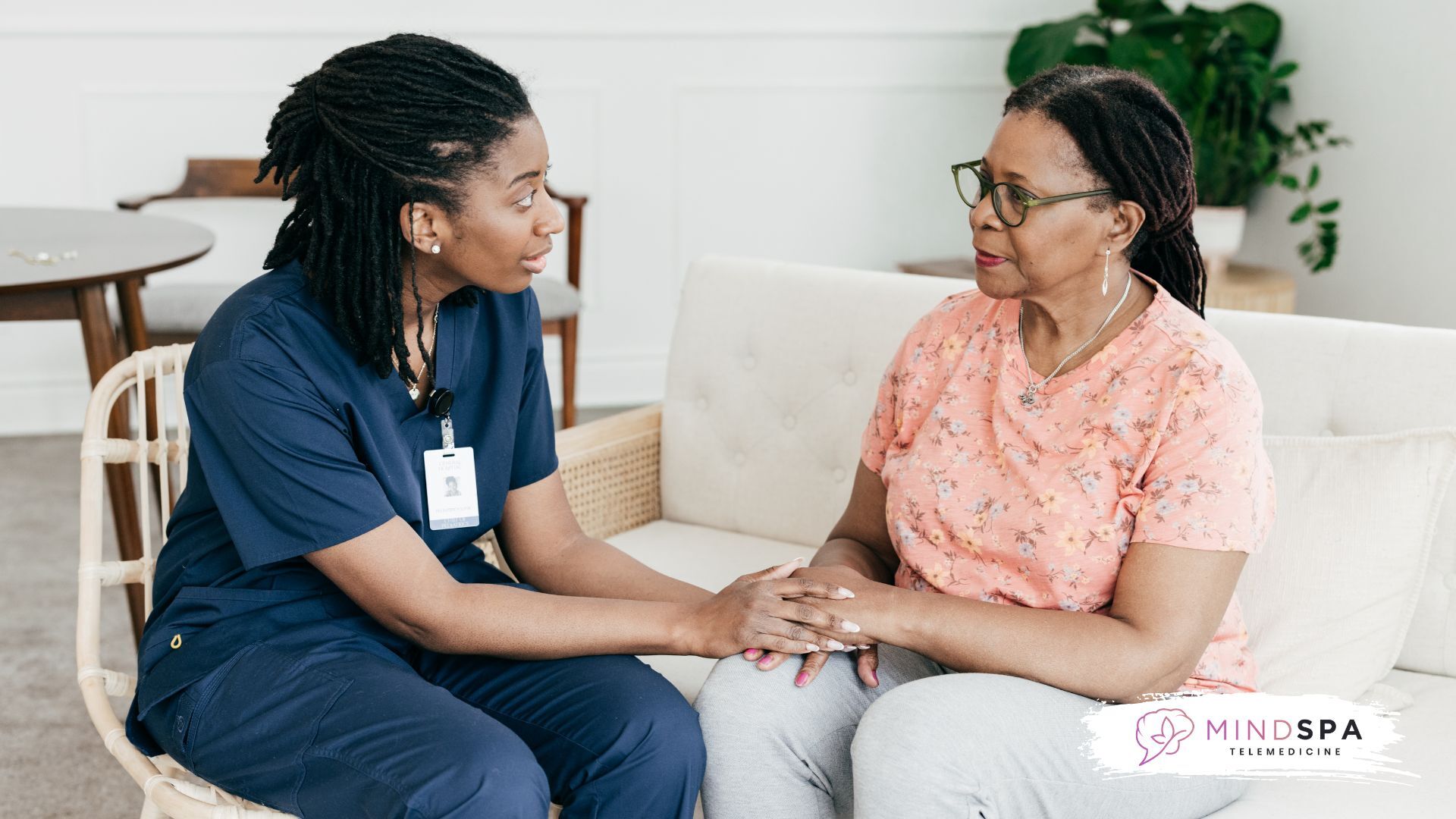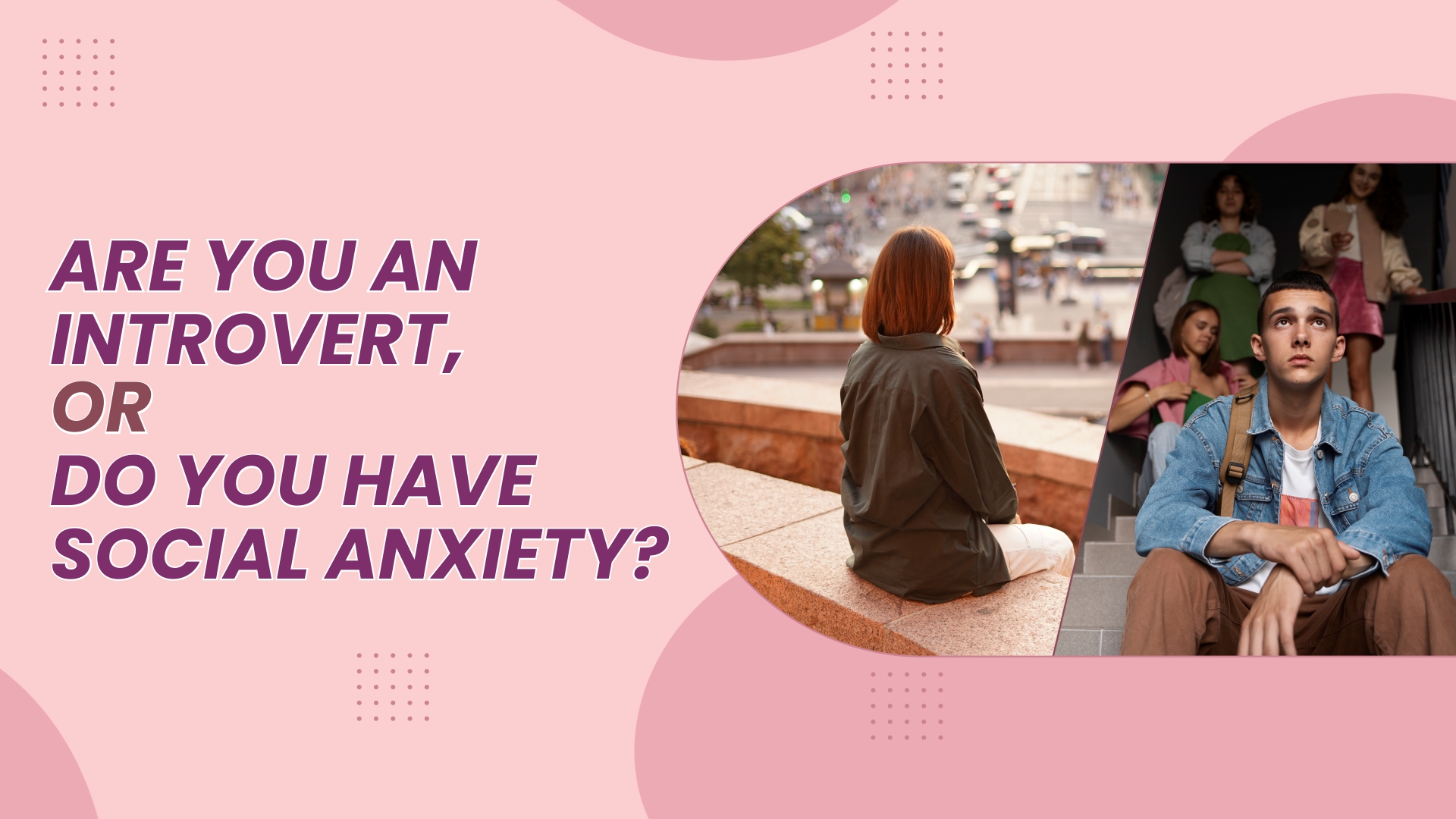Have you ever wondered whether you’re just a little introverted or if there’s something else going on?
Well, you are not alone!
Here, we’ll look into the eye-opening facts about being introverted and social anxiety. But don’t worry, we’re dropping knowledge bombs while keeping it light and friendly.
Let’s begin.
Introversion and Social Anxiety—Why?
First, Let me set out what we’re talking about. Introversion and social anxiety are different but still confused. Introverted people gain energy from their time and prefer calmer, more low-key social gatherings. Whereas social anxiety is a mental condition that causes awful fear of social gatherings with physical symptoms like sweating, shaking, and a racing heart.
It is very important to know the difference between introversion and social anxiety. Knowing which side of the coin you are can help you handle social situations with ease and compassion. It will help you understand if any support is required or not.
Introducing the unsung heroes of healthcare: NURSES! These amazing people help introverts and socially anxious people by offering a listening ear, a comforting presence, and expert guidance in hospitals, clinics, and communities.
 Am I an Introvert?
Am I an Introvert?
Being introverted is a personality trait, not shyness. For introverts, quiet, reflective places are more energizing than big groups of people. Does this sound familiar?
Quieter activities like reading, writing, or just being alone help introverts recharge, while extroverts get energized by socializing.
Have you ever wondered if you’re not just an introvert? We are here for you. We’ll help you look into the signs of introversion and social anxiety and help you understand the differences between these two.
Picture this: You read with tea at home on Friday night while everyone else paints the town red. Maybe you need some alone time to unwind after a day of socializing. If you like these scenes, you may be introverted.
Introverts use reclusion to think and feel. Introverts enjoy socializing, but they prefer deeper, meaningful connections over small talk and superficial interactions.
Introversion is normal! No need to fix or change—it’s part of you. Introverts are great at listening, observing, and thinking deeply, which are introverts’ strengths. If you’ve ever felt like an outsider in a crowd of extroverts, there’s nothing wrong with going your own way.
Is It Social Anxiety?
Social anxiety disorder hides in social interactions, casting doubt and fear over mundane interactions. But what is it?
Social anxiety disorder hides in social interactions, casting doubt and fear over mundane interactions. But what is it? Laying it down:
Social anxiety disorder, or social phobia, is outlined by intense fear of social situations where others may judge one. Sweating, trembling, and overwhelming dread and panic are symptoms.
You must realize social anxiety goes beyond shyness. Social anxiety is worse than shyness and often leads to social avoidance.
Consider feeling like every social encounter is a minefield waiting to explode with judgment and criticism. This applies to many socially anxious people. Fear of criticism can cloud daily life, from phone calls to social events.
Ah, judgment anxiety! This fear haunts socially anxious people, affecting every interaction. Being noticed or making a mistake may scare them.
Introverts may feel uncomfortable in social situations because they need time to process and recharge after social interactions, not for judgment. You must be yourself, whether introverted, socially anxious, or both. Do not feel alone with social anxiety. NPs can reduce anxiety and boost confidence.
How Are Introversion and Social Anxiety Different?
So, Introverted people prefer quieter environments to recharge after social interactions. This personality enjoys being alone, which can be comforting to them. However, social anxiety is fear and discomfort in social situations, and often comes with physical and emotional signs.
There is a thin line between introversion and social anxiety. Introverts may enjoy socializing on their own, but social anxiety causes overwhelming fear and avoidance of social situations. It’s like the difference between reading at home and worrying about going to a party.
Now, let’s talk about how important it is to get a correct assessment and professional help. Talk to someone if you’re having trouble socializing and feeling down. A trained professional can offer personalized assistance and support for social anxiety.
Finally, knowing the differences between introversion and social anxiety can help you handle social settings better. Are you a proud introvert or struggling with social anxiety? Always Remember, You’re not alone, and people are there to help you. Pick your own path and ask for help when needed. We believe in you!
What Is the Role of Nurses in Social Anxiety?
Nurses are the backbone of healthcare, and their impact goes beyond just medications. It is well known that nurses are kind and understanding with people who have social anxiety, which can have a big impact on their lives. They provide medical care, emotional support, active listening, and assurance to those in need.
When nurses interact with patients who are socially anxious, they do so with compassion and empathy. They want patients to feel safe and cared for while having simple conversations or more in-depth therapy. Nurses value acknowledging patients’ experiences and showing empathy without judgment.
Patients can discuss their fears and struggles in this safe space.
Empathy, active listening, and therapy are needed in mental health nursing. Through active listening, nurses interpret patient emotions and promote healing. Patients feel safe expressing their fears due to their compassion. Professional Nurses must be honored for mental health support.

Social Anxiety and Patient Perspectives
Nurses’ kindness and empathy can put patients at ease from the moment they enter a hospital. A comforting smile, gentle touch, or listening ear can make the difference for mental health patients. A lot of the time, patients say that these acts of kindness help them feel safer and more trusting.
NPs assess and treat physical and mental health issues due to their expert training. Open communication and active listening to patients’ concerns create a supportive environment.
Through therapeutic relationships, nursing care helps people with mental health problems get better. Nurses help patients get through tough times and heal by creating trust, respect, and empathy.
They help patients manage their mental health through information, counseling, and encouragement, allowing them to make informed choices about their health and lifestyle.
Compassionate nursing affects families, communities, and society. Patients who receive empathetic care from NPs frequently express gratitude for the positive results and the impact on their relationships, work, and quality of life.
Finding Your Way
Introversion and social anxiety can be difficult, but with the right approach, you can live an improved quality of life.
Taking care of your social anxiety and introversion can make your life better. Social anxiety is a strong fear or worries in social situations, while introversion means being alone and thinking about your own feelings. Accept that you are an introvert, practice mindfulness, set limits, and slowly put yourself in more difficult situations to help you deal with them.
Start out slowly and add more challenges to social situations that make you anxious over time. Take breaks as needed and try deep breathing or visualizing to calm down. Therapy and counseling can help people in a way that is unique to them.
Remember, it’s okay to ask for support and prioritize your mental health. You deserve to live a life filled with joy, peace, and fulfillment, and with MindSpa Psychiatry, you can achieve just that.


